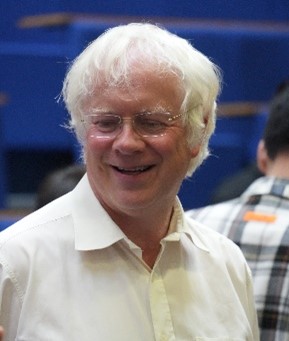The Consortium
There are over 40 people working across the UK-MaRes Hub, including the Director, Co-Directors, Co-Investigators, Researchers, Technicians and Professional Service Staff, all passionate about driving forward the research and innovation needed to create meaningful change across the sector. See below to find out more about the people involved.
Filter by
Dr Martin Smith
Hydrogen Accelerator Programme Coordinator & Project Manager/Senior Researcher at University of St Andrews
Martin is a graduate engineer, chemist, and environmental scientist with a PhD in Physics and Chemistry. After several years managing large-scale EU-funded fundamental R&D projects in Germany, Martin returned to Scotland, where he was struck by the lack of progress in energy conversion and storage technologies. Recognizing their critical role in addressing the intermittency issues of wind and other renewable energy sources, he sought to drive innovation in this space.

Dr Shu Wang
Research Fellow
Dr Shu Wang completed his MSc in Material Science and Engineering from Sun Yat-Sen University, China in 2017 and undertook his PhD studies at the Technical University of Denmark, before moving to Strathclyde University in his last year.
Shu joined the JTSI Research Group in 2024 as a Research Fellow and his main research interests focus on Methanol Solid Oxide Fuel Cells in Marine Demonstrations.

Professor John Irvine
Professor, School of Chemistry at University of St Andrews
John Irvine CBE, FRSE, FRSC has made unique and world-leading contributions to the science of energy materials, especially fuel cell and energy conversion technologies. This research has ranged from detailed fundamental to strategic and applied science and has had major impact across academia, industry and government. Irvine’s science is highly interdisciplinary extending from chemistry and materials through physics, bioenergy, geoscience, engineering, economics and policy.
The quality and impact of Irvine’s research has been recognised by a number of national and international awards, including the honour of the Commander of the Order of the British Empire(CBE) in the Kings Birthday Honours List 2024, the Royal Society’s Hughes Medal in 2021, the Lord Kelvin Medal from the Royal Society of Edinburgh in 2018, the Schönbeim gold medal from the European Fuel Cell Forum in 2016, the RSC Sustainable Energy Award in 2015, and earlier RSC recognition by being awarded the Bacon and Beilby awards.
Highlights of Irvine’s activities include discovery of the Emergent nanomaterials phenomenon, establishing the field of oxide fuel electrodes, delivering high performance direct carbon fuel cells and demonstration of significant hydride ion conductivity. Other important achievements relate to photocatalysis, lithium ion batteries, non-stoichiometric oxides, Structure/ Property/Function, catalysis and electrocatalysis and bioenergy.
